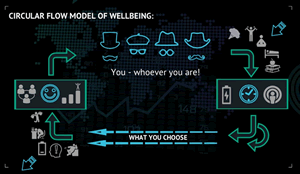 In 2016 I had the privilege of presenting a keynote address and workshop at the Positive Schools Conference in Singapore. There were over 250 educators and school leaders from 15 different countries in attendance. Most of these were from the Asia region. As I am passionate about understanding and uncovering the cross-cultural dimensions of gratitude, including the underlying complexities, this was a great educational opportunity for me.
In 2016 I had the privilege of presenting a keynote address and workshop at the Positive Schools Conference in Singapore. There were over 250 educators and school leaders from 15 different countries in attendance. Most of these were from the Asia region. As I am passionate about understanding and uncovering the cross-cultural dimensions of gratitude, including the underlying complexities, this was a great educational opportunity for me.
The day before the conference began, I was also fortunate to present a workshop on the role of gratitude in adult education at the Adult Learning Institute of Singapore. Where the participants had thought that they had come along to learn from me, I started by saying that actually I had also come to learn about gratitude from them in readiness for my address the next day. They responded to this request with great enthusiasm and gave me many instances of what makes the Western notion and expression of gratitude difficult in their culture.
Of course, it’s impossible to generalise these findings to all Singaporeans and I know that I am only scratching the surface. However, when I contextualised my keynote presentation by sharing what I had learnt, many of the participants agreed that this was generally indicative of their experience.
My findings about the cross-cultural differences in gratitude can be summarised under four main themes.
- Firstly, as a collectivist society, gratitude is considered to be more of the fabric of the culture than something that needs to be expressed outwardly. Many find the Western need to express gratitude awkward both in receiving it and knowing how to express it back in return. Many Singaporeans felt that if they were to emulate this towards their fellow citizens, it would be like a loss of face, as effusive expressions of gratitude are not really part of their culture.Does this mean that Singaporeans are lacking in gratitude? By no means. Gratitude is felt inwardly and expressed in different ways. There are so many wonderful examples of unspoken gratitude, most especially expressed through the medium of offering special meals. Words may not be articulated but actions that give the receiver the feeling of receiving gratitude are ever-present.However, there was general consensus in the workshop that a greater focus on other kinds of outward expressions of gratitude might help the society focus more fully on relationships and bring greater trust and collegiality to workplaces and schools.
In this pursuit, it would be very important for Singaporeans to find ways to outwardly express gratitude in a manner that is appropriate to their culture. As one participant admitted, her biggest challenge in expressing gratitude is that she finds the effusive, affectionate way that some Westerners express gratitude foreign to her.
- Secondly, the main focus in the education system is to do well in exams. In a culture of fierce competition, gratitude may seem to have no place. As gratitude is inherently prosocial and all about relationships, it may be perceived as having little relevance to the main motivating force behind all curricula, policy, interventions, and efforts on behalf of the teachers. Even if teachers did want to focus on other things, the pressure from parents to ensure that their child is preparing and performing well in exams is so all-consuming that they wouldn’t have much chance to consider other things that are seemingly unrelated.As my work on gratitude is driven by an educational imperative, rather than a therapeutic one, I would like to think that attention to gratitude may indeed be relevant and helpful to the achievement of these goals. Preliminary research is showing that gratitude enhances our cognitive ability.
- Interconnected with this is the third theme, that the international league tables show that Singapore is doing extremely well in terms of how education is currently conceptualised: performance in literacy and numeracy scores. As they are getting international acclaim for their success, this may further entrench scepticism as to the relevance of gratitude.However, some Singaporeans are starting to see that this focus has made them too one-dimensional and that they need to look towards creativity and, I would say, greater social competence. Research all around the world is attesting to the fact that at the core of effective teaching and learning is flourishing relationships. This is regardless of culture. The connecting element that gratitude gives to all relationships may well be seen as important to enhancing the educative process in Singapore and other countries that have been exclusively exam orientated.
- Finally, to express gratitude could be seen as demotivating and counter to the all-consuming drive to do better, to strive to perform to one’s absolute best in an exam. To say thank you or express gratitude could be misunderstood as a way of saying that you have done your best and there is nothing more to do.This raises a fundamental and important point of difference between gratitude and positive feedback or praise. Inherent to gratitude are the three elements of giver, receiver and gift. Gratitude is a way of expressing thanks out of acknowledgment for what we have received from another. Positive feedback on the other hand, is a way of recognising and rewarding good work or effort, and is usually a one-way process of comment from, in the education context, the teacher to the student. It may be completely devoid of the giving and receiving dynamic that is critical to gratitude.If the two actions are confused there is a danger that gratitude will be unnecessarily withheld because it might be seen as a way of reinforcing unwanted behaviour or offering undue reward. In my view, our gratitude should never be withheld as it provides the social cohesion between individuals and affirms their value in the world. If we don’t act on the motivating force to give back when we have received, or to express our thanks, we can feel incomplete, or out of integrity.
In my short stay in Singapore, I saw and heard of many different ways in which gratitude is expressed. An example of this is the Pioneer scheme. This is an act of gratitude by the government of Singapore to the older generation to thank them for the hard work they put in to the establishment of their country. Any citizen over the age of 65 is given a card that gives them entitlements to discounts on many services. The scheme appears to be similar to our pension scheme in Australia. However, it seems to be more infused with a spirit of gratitude, and is an example from which we can learn how to enhance our own gratitude as we see how it’s done well in other cultures.
Kerry Howells PhD
Senior Lecturer, Curriculum and Pedagogy
Faculty of Education, University of Tasmania
www.kerryhowells.com


